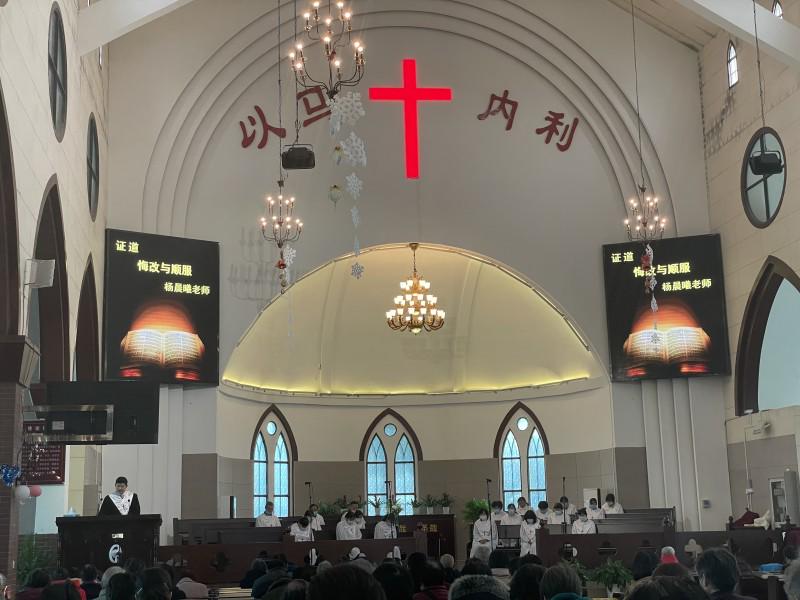Holy Light Church in Nanjing, Jiangsu, resumed its on-site Sunday service on March 21, after the suspension due to the resurgence of coronavirus pandemic before the 2021 Spring Festival.
Coincidently with the Lenten season of the ecumenical church, based on Matthew 21:28-32, Teacher Yang Chenxi gave a sermon titled "Repentance and Obedience", sharing with the congregation how to meditate on repentance and practice truth in their lives during the days.
Known as the pre-suffering period, Lent has lasted till now since the establishment of the church. During its forty days, an important aspect is to meditate on repentance. During this festival, believers observe Lent in various ways, such as fasting; but they do not only focus on eating or drinking, but also on training themselves to be godly. On the other hand, by enduring hunger, they can feel the pain of the poor and the suffering of Christ’s cross and prepare themselves to experience the Lord's resurrection.
During this period, not only do the catechumens of the church prepare for baptism in Easter, but previously baptize believers also strived to re-establish their relationship with the Lord through fasting, offerings, and prayer.
Yang stated, "The two sons mentioned in the above-mentioned passage in Matthew 21 were very much like us. The elder son represented people who had heard the gospel but whose souls had not yet awakened; those were people who received God's call but still did not understand the truth. Working in the vineyard symbolized obeying God's will, and the younger one rejected God's will because of his spiritual naiveness and his ignorance of the truth. People often despised God as they thought that man could conquer the sky, but younger son later regretted it and went to the vine."
"Repentance and truth are very important themes in the New Testament. John the Baptist preached the baptism of repentance, Jesus preached the gospel of repentance in Galilee, and so did his disciples; those instances clearly show the importance of the message of repentance," he added.
"Paul emphasized that you must repent and be baptized in the name of Jesus, as repentance was a new beginning and a door to eternal life. Repentance was like a key that could open the door to salvation which was the core of the gospel," the teacher emphasized.
Yang cited a story from the book "Golden Booklet of the Christian Life" written by John Calvin, to describe repentance.
"Repentance was like a person standing on a rock on a cliff that was about to fall. If you kept standing on the stone, you would end up with death. At that time, a rope was dropped from the top to save people from that dangerous place, and one thing a person needed to do was to grab the rope and kick off the stone to jump to a safe place. He believed that the rope could save himself, so he grabbed it."
"How did he get to the safe place? The method was to push off the rocks under his feet. However, some believers held the rope of salvation in their hands but still stepped on the stone of crime under their feet. And they felt that they were at peace, but in fact, had no peace. Repentance is not self-deception but a person's determination to renounce a sinful life."
The Lord Jesus used the story of the two sons to warn that the people who had outward piety could not enter the kingdom of God, he said.
"The initial response (becoming a believer) was not enough and might not last till the end; rejection (of a sinful life) at the beginning does not mean rejection forever," he concluded.
(The original article is published by Gospel Times)
- Translated by Abigail Wu













